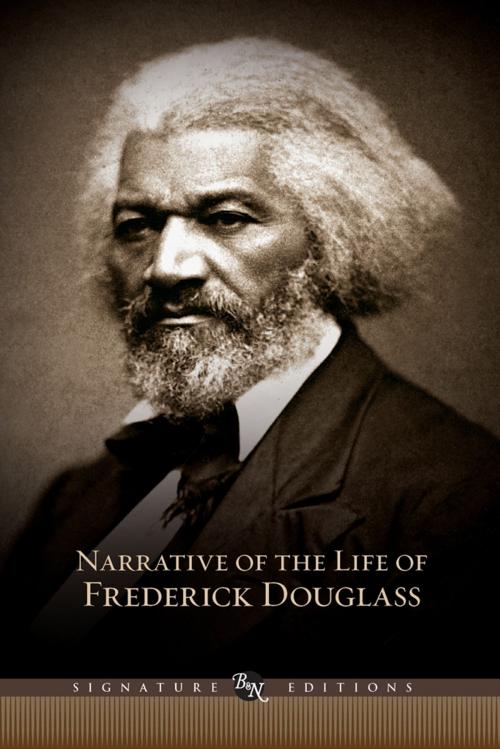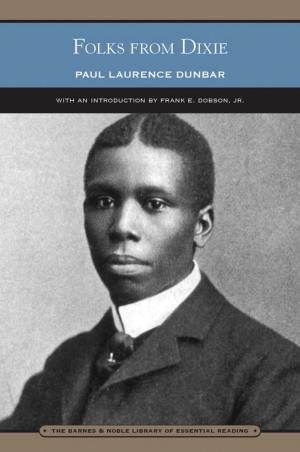Narrative of the Life of Frederick Douglass (Barnes & Noble Signature Editions)
And Selected Essays and Speeches
Fiction & Literature, Classics| Author: | Frederick Douglass | ISBN: | 9781435141186 |
| Publisher: | Barnes & Noble | Publication: | November 1, 2012 |
| Imprint: | Barnes & Noble | Language: | English |
| Author: | Frederick Douglass |
| ISBN: | 9781435141186 |
| Publisher: | Barnes & Noble |
| Publication: | November 1, 2012 |
| Imprint: | Barnes & Noble |
| Language: | English |
Frederick Bailey doesn’t know the year of his birth. Separated from his mother in infancy, he sees her only a few times, always at night, before she dies when he is about seven years old. His fellow slaves agree that his father is a white man, perhaps Captain Anthony, his master. While still only a small boy, Frederick witnesses the brutal whipping of his aunt, the first of many such beatings he will see or suffer.
At the age of seven or eight, Frederick is sent from the Maryland plantation of his birth to Baltimore, where for the first time, he is fully clothed and has enough to eat. His kindly new mistress starts teaching him to read, until her furious husband forbids it. Frederick realizes then that reading is his path to freedom, but his journey is long and horrible. He watches his smiling mistress transform into an angry, cruel slave owner; people he trusts betray him; and a merciless “slave breaker” works and beats him into brutish submission. Still, he dreams of freedom.
Early nineteenth-century Northerners had difficulty imagining the lives of Southern slaves. In writing this Narrative, Frederick Douglass, a fugitive slave, revealed his slave name, the names of his masters and overseers, and the locations of his servitude. This starkly honest and verifiable account appalled readers and gave new momentum to the abolitionist movement. It is as shocking today as when it was originally published.
Frederick Bailey doesn’t know the year of his birth. Separated from his mother in infancy, he sees her only a few times, always at night, before she dies when he is about seven years old. His fellow slaves agree that his father is a white man, perhaps Captain Anthony, his master. While still only a small boy, Frederick witnesses the brutal whipping of his aunt, the first of many such beatings he will see or suffer.
At the age of seven or eight, Frederick is sent from the Maryland plantation of his birth to Baltimore, where for the first time, he is fully clothed and has enough to eat. His kindly new mistress starts teaching him to read, until her furious husband forbids it. Frederick realizes then that reading is his path to freedom, but his journey is long and horrible. He watches his smiling mistress transform into an angry, cruel slave owner; people he trusts betray him; and a merciless “slave breaker” works and beats him into brutish submission. Still, he dreams of freedom.
Early nineteenth-century Northerners had difficulty imagining the lives of Southern slaves. In writing this Narrative, Frederick Douglass, a fugitive slave, revealed his slave name, the names of his masters and overseers, and the locations of his servitude. This starkly honest and verifiable account appalled readers and gave new momentum to the abolitionist movement. It is as shocking today as when it was originally published.















